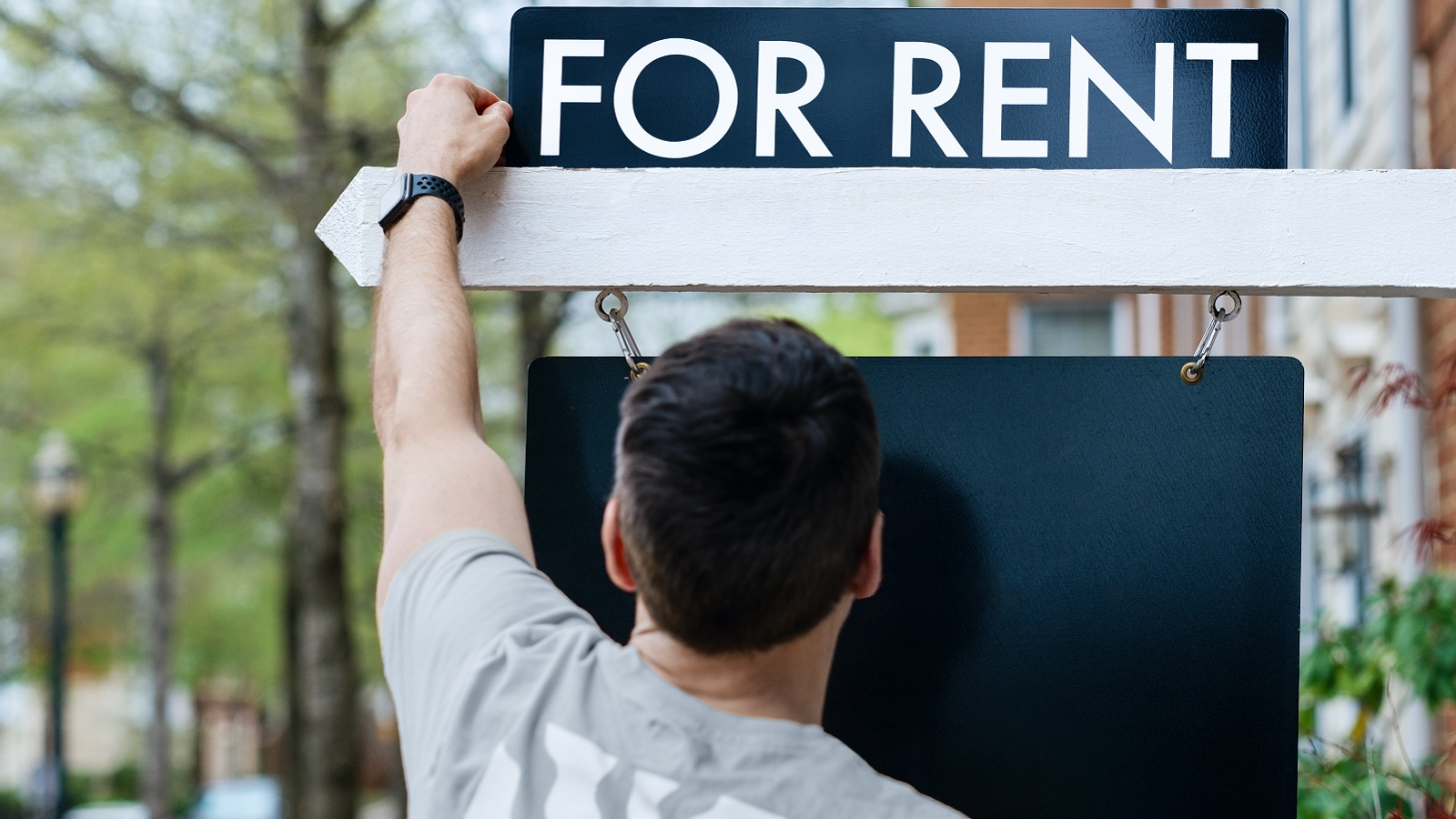Inherited a House? Here's How to Decide What to Do With It
When you inherit a property, the decision to keep, rent or sell can feel overwhelming, especially when emotions are involved. Here's what you need to consider.


Profit and prosper with the best of Kiplinger's advice on investing, taxes, retirement, personal finance and much more. Delivered daily. Enter your email in the box and click Sign Me Up.
You are now subscribed
Your newsletter sign-up was successful
Want to add more newsletters?

Delivered daily
Kiplinger Today
Profit and prosper with the best of Kiplinger's advice on investing, taxes, retirement, personal finance and much more delivered daily. Smart money moves start here.

Sent five days a week
Kiplinger A Step Ahead
Get practical help to make better financial decisions in your everyday life, from spending to savings on top deals.

Delivered daily
Kiplinger Closing Bell
Get today's biggest financial and investing headlines delivered to your inbox every day the U.S. stock market is open.

Sent twice a week
Kiplinger Adviser Intel
Financial pros across the country share best practices and fresh tactics to preserve and grow your wealth.

Delivered weekly
Kiplinger Tax Tips
Trim your federal and state tax bills with practical tax-planning and tax-cutting strategies.

Sent twice a week
Kiplinger Retirement Tips
Your twice-a-week guide to planning and enjoying a financially secure and richly rewarding retirement

Sent bimonthly.
Kiplinger Adviser Angle
Insights for advisers, wealth managers and other financial professionals.

Sent twice a week
Kiplinger Investing Weekly
Your twice-a-week roundup of promising stocks, funds, companies and industries you should consider, ones you should avoid, and why.

Sent weekly for six weeks
Kiplinger Invest for Retirement
Your step-by-step six-part series on how to invest for retirement, from devising a successful strategy to exactly which investments to choose.
Although a thoughtful and generous gift from a loved one, inheriting property can stir up many emotions, blending fond memories with the uncertainty of managing an unexpected asset.
Deciding whether to keep, rent or sell your inherited property is deeply personal and depends on your financial goals, emotional attachment, market conditions and tax implications. If multiple people inherit a property, things can get even more complicated.
It’s definitely a big decision with plenty to consider. Here's some guidance on how to think it through and make the right decision for you.
From just $107.88 $24.99 for Kiplinger Personal Finance
Become a smarter, better informed investor. Subscribe from just $107.88 $24.99, plus get up to 4 Special Issues

Sign up for Kiplinger’s Free Newsletters
Profit and prosper with the best of expert advice on investing, taxes, retirement, personal finance and more - straight to your e-mail.
Profit and prosper with the best of expert advice - straight to your e-mail.
What is your personal and financial situation?
If you’re struggling financially, you might opt to sell, hands down. If you’d rather have some passive income, you might favor renting.
But if you’d like a long-term investment to use later on when you retire, you might decide to rent or keep the property.
The key factor is being honest about whether or not nostalgia clouds your judgment. You might be sentimentally tied to the property. Keeping it for personal use or family legacy might outweigh your financial considerations.
It’s also important to identify if the property has outstanding debts or taxes (e.g., state inheritance taxes in 17 states). If so, selling could be your only option.
Finally, managing a rental property requires time, money and effort. If you lack the ability, don’t have the time or live far away, selling or hiring a property manager might be better if you decide to hold onto the property.
What is the property’s condition and potential?
If you fear the property will need significant work, such as a new roof or HVAC update, and you’re uncertain you can finance the renovations, renting could be out of the question.
For example, the average annual maintenance cost for a single-family home in the U.S. varies, but generally falls from $3,000 to $21,400, depending on the home’s age, size, location and condition. Homeguide.com estimates $4,000 to $22,000, with a general rule of 1% to 4% of the home’s value. That equals $3,000 to $12,000 for a $300,000 home.
You might also want to get an appraisal to determine the property’s fair market value (FMV). This will establish your stepped-up basis for tax purposes and give you an estimate of potential sale or rental income. In addition, research local market trends and check rental rates by consulting with a realtor.
Read: Estate Planning: How Does the Basis Step-Up Rule Work?
Compare your three options — keep, rent or sell
If multiple people are inheriting the property, you might have several options to consider. But if you’re willing to talk it out before making a decision, consider the pros and cons of each of your alternatives.
Keep the property

Keeping an inherited property makes perfect sense when considering the potential for long-term appreciation, which can significantly boost your retirement nest egg as a hedge against rising costs, such as health care.
It can also secure your financial freedom while preserving a family asset for future generations or personal use, such as a vacation home, all without the emotional toll of selling a family legacy.
Pros
- Retains your family’s legacy and sentimental value.
- Can serve as a primary residence, vacation home or future retirement property.
- Potential for long-term appreciation in strong markets.
- If used as a primary residence for two of five years before selling, you qualify for a capital gains exclusion — $250,000 single, $500,000 married in 2025.
Cons
- Ongoing costs: property taxes, insurance, maintenance, and utilities (even if vacant).
- Ties up capital that could be invested elsewhere. Keep in mind that stocks historically outperform real estate in some markets.
- Might owe estate or inheritance taxes if the estate exceeds federal ($13.99 million in 2025) or state thresholds.
Overall, keeping the property is best if you have an emotional attachment to it.
Maybe it’s your parents’ or grandparents’ home and you want to pass it down, says Karla Dennis, Founder/CEO at Karla Dennis & Associates.
“Maybe you have plans to use the property for personal use or as a rental, and have the cash to cover any costs, both in the short- and long-term. It can also be a great choice if it’s in a neighborhood that’s growing.”
Rent the property

Dennis also mentions that renting it might be the way to go if the house can make you some money each month.
“It’s a smart way to earn income without selling, especially if your family wants to keep it, but no one wants to live there," Dennis says. "You will have to pay taxes on the rent, but you can also write off a lot of the costs, like fixing it up or paying for house insurance."
Pros
- The potential to generate passive income to cover expenses and build wealth.
- Preserves the asset for future generations.
- Tax benefits include deductions for mortgage interest, property taxes, depreciation (over 27.5 years) and maintenance.
- Continued high rental demand in 2025 due to elevated home prices, low inventories and high interest rates.
Cons
- Requires property management or manager fees, which can be 8% to 12% of rent.
- Risks include unexpected vacancies, bad tenants and repairs.
- Stricter tenant protection laws, like rent control and eviction restrictions, can increase your responsibilities as a landlord.
- Rental income is taxable, although deductions might offset much of it.
If you want passive income and are comfortable with landlord responsibilities, renting can be a great option. Short-term rentals, such as Airbnb and Vrbo, might work in your favor depending on the location.
But keep in mind that tenants might not treat your family home with the same love and care.
“For many with strong emotional ties to the home, renting could be a dealbreaker, and selling the home could be the better option here,” says Derek Russell Munchow of Augustus Wealth.
“For some, selling provides a clean break — offering closure, liquidity, and peace of mind without the ongoing emotional or financial burden of renting.”
Sell the Property

At times, it might be difficult, but selling is still often the easiest move.
“If you need the money, the home needs a lot of work, or the family can’t agree on what to do, then selling is the way to go,” adds Dennis.
She goes on to say that tax-wise, you usually won’t owe much because the house is treated like you got it at today’s value, not what it was worth way back when.
“If you sell right away, the taxes are often super low or zero. Just be aware that some states might still tax the sale.”
Pros
- Immediate liquidity to invest, pay off debts or fund personal goals.
- Minimizes capital gains tax due to the stepped-up basis. Selling at or near fair market value incurs little to no tax.
- You can avoid ongoing costs and landlord responsibilities.
- Simplifies the settlement of the estate, especially if multiple heirs are involved.
Cons
- Loses potential future appreciation or rental income.
- Selling costs typically range from about 6% to 10% of the sale price, including realtor commissions and closing fees.
- Emotional obstacles if you are attached to the property.
- May trigger state inheritance taxes if not exempt.
You might want to sell if you need or want the cash and have no time for property management. Although this can tug on the heartstrings more than renting or keeping the property, sometimes it just doesn’t make financial sense to hang onto something you might never use or enjoy.
Munchow faced this decision firsthand after losing his mother in November 2024. He was the sole beneficiary of the home he grew up in, and says the emotional weight was considerable, and played a much larger role than the financials alone.
“Personally,” Munchow confides, “I ended up selling my mother's home due to the emotional factors, pristine condition of the property and strong market conditions."
What are the tax implications?
Once you learn that you’ve inherited a property, you might wonder if you’ll have to pay an inheritance tax.
Although inheriting a property doesn’t trigger any automatic tax liability, what you decide to do — move in, rent it or sell it — will cause you to incur capital gains taxes, property taxes, and possibly other expenses.
Capital gains tax: Capital gains taxes are federal taxes you pay on the profits you earn from the sale of an investment — the difference between what was initially paid for the property and what it sells for.
Fortunately, you’ll be protected from the majority of capital gains taxes when you inherit a home because of the step-up tax basis.
If you sell the property, capital gains above the stepped-up basis are taxed at 15% to 20% (federal), plus state taxes. You can deduct selling costs to reduce taxable gains.
If you rent and then sell, the depreciation of the property will reduce your basis over time, increasing future gains tax. Plan for this when deciding to rent long-term.
Stepped-up basis: You’ll benefit from a step-up tax basis when inheriting a property. That means on the date of the inheritance, you’ll inherit the property at the fair market value (FMV), but you’ll only be taxed on any gains from the time you inherit the home to when you sell it.
At the time of the decedent’s death, the property’s tax basis is reset to its FMV, reducing capital gains tax if sold immediately. Make sure to document the property's FMV with an appraisal right away.
Rental income: If you decide to rent, all rental income is taxable but can be offset by deductions like maintenance and depreciation.
Estate/inheritance taxes: The federal estate tax only applies above $13.99 million in 2025. State taxes vary.
Disclaiming inheritance: If taxes or costs are too high, you can disclaim the property, passing it to the next heir. Be sure to consult an attorney first, as disclaiming an inheritance is irreversible.
Consider market trends
Strong demand in the rental market continues due to high home prices, low inventory in some areas and interest rates that can be a put-off for buyers. Single-family rentals are in demand, and multi-family construction dropped 25% in 2024, limiting supply and supporting growth in the rental market.
If you’re considering selling, keep in mind that the average time to sell a house is 55 days, according to Houzeo.
Location, property size, condition, and more can increase the time your property stays on the market. It’s also important to understand that the probate process for inherited property is necessary to legally transfer the property, which can sometimes take up to 18 months.
However, that period can be delayed longer if there are multiple heirs and disagreements.
Make the decision
Still not sure what’s best for your personal situation? Run the numbers and weigh your options.
Keep: Calculate annual costs (taxes, insurance, maintenance) vs potential appreciation of the property.
Rent: Estimate your rental income (net rent minus expenses, including vacancies and management fees) and tax deductions.
Sell: Project net proceeds (sale price minus commissions, fees, and taxes) and compare to all other investments.
Consult a professional. A CPA can clarify tax implications and deductions. An estate attorney can ensure the title is clear and address any probate or tax issues, and answer any questions you might have. A realtor can provide market analysis and rental and sale projections, which might tip the scale one way or another.
Consider other heirs. If multiple heirs are involved, discuss everyone’s preferences. Selling might be simpler if the profits are split equally. If you’re still unsure, renting temporarily might give you the time you need to take a hard look at management demands and market trends.
Keep, rent or sell?
Ultimately, there’s no one-size-fits-all answer. Dennis acknowledges that a property in a high-demand rental market might be worth keeping or renting, but she also contends that a property in a declining area or requiring major repairs may be better off sold.
Andrew Constantinides, CFP, investment advisor and chief strategist at Neil Jesani Wealth, often tells his clients, “Sometimes the best return isn’t just financial — it’s peace of mind and the ability to sleep well at night.
"Consider your emotional ties, financial goals, and the property's economic reality before choosing your path."
Related Content
Profit and prosper with the best of Kiplinger's advice on investing, taxes, retirement, personal finance and much more. Delivered daily. Enter your email in the box and click Sign Me Up.

For the past 18+ years, Kathryn has highlighted the humanity in personal finance by shaping stories that identify the opportunities and obstacles in managing a person's finances. All the same, she’ll jump on other equally important topics if needed. Kathryn graduated with a degree in Journalism and lives in Duluth, Minnesota. She joined Kiplinger in 2023 as a contributor.
-
 Quiz: Do You Know How to Avoid the "Medigap Trap?"
Quiz: Do You Know How to Avoid the "Medigap Trap?"Quiz Test your basic knowledge of the "Medigap Trap" in our quick quiz.
-
 5 Top Tax-Efficient Mutual Funds for Smarter Investing
5 Top Tax-Efficient Mutual Funds for Smarter InvestingMutual funds are many things, but "tax-friendly" usually isn't one of them. These are the exceptions.
-
 AI Sparks Existential Crisis for Software Stocks
AI Sparks Existential Crisis for Software StocksThe Kiplinger Letter Fears that SaaS subscription software could be rendered obsolete by artificial intelligence make investors jittery.
-
 Quiz: Do You Know How to Avoid the 'Medigap Trap?'
Quiz: Do You Know How to Avoid the 'Medigap Trap?'Quiz Test your basic knowledge of the "Medigap Trap" in our quick quiz.
-
 We Retired at 62 With $6.1 Million. My Wife Wants to Make Large Donations, but I Want to Travel and Buy a Lake House.
We Retired at 62 With $6.1 Million. My Wife Wants to Make Large Donations, but I Want to Travel and Buy a Lake House.We are 62 and finally retired after decades of hard work. I see the lakehouse as an investment in our happiness.
-
 Social Security Break-Even Math Is Helpful, But Don't Let It Dictate When You'll File
Social Security Break-Even Math Is Helpful, But Don't Let It Dictate When You'll FileYour Social Security break-even age tells you how long you'd need to live for delaying to pay off, but shouldn't be the sole basis for deciding when to claim.
-
 I'm a Wealth Adviser Obsessed With Mahjong: Here Are 8 Ways It Can Teach Us How to Manage Our Money
I'm a Wealth Adviser Obsessed With Mahjong: Here Are 8 Ways It Can Teach Us How to Manage Our MoneyThis increasingly popular Chinese game can teach us not only how to help manage our money but also how important it is to connect with other people.
-
 Global Uncertainty Has Investors Running Scared: This Is How Advisers Can Reassure Them
Global Uncertainty Has Investors Running Scared: This Is How Advisers Can Reassure ThemHow can advisers reassure clients nervous about their plans in an increasingly complex and rapidly changing world? This conversational framework provides the key.
-
 5 Ronald Reagan Quotes Retirees Should Live By
5 Ronald Reagan Quotes Retirees Should Live ByThe Nation's 40th President's wit and wisdom can help retirees navigate their financial and personal journey with confidence.
-
 We're 78 and Want to Use Our 2026 RMD to Treat Our Kids and Grandkids to a Vacation. How Should We Approach This?
We're 78 and Want to Use Our 2026 RMD to Treat Our Kids and Grandkids to a Vacation. How Should We Approach This?An extended family vacation can be a fun and bonding experience if planned well. Here are tips from travel experts.
-
 Should You Jump on the Roth Conversion Bandwagon? A Financial Adviser Weighs In
Should You Jump on the Roth Conversion Bandwagon? A Financial Adviser Weighs InRoth conversions are all the rage, but what works well for one household can cause financial strain for another. This is what you should consider before moving ahead.